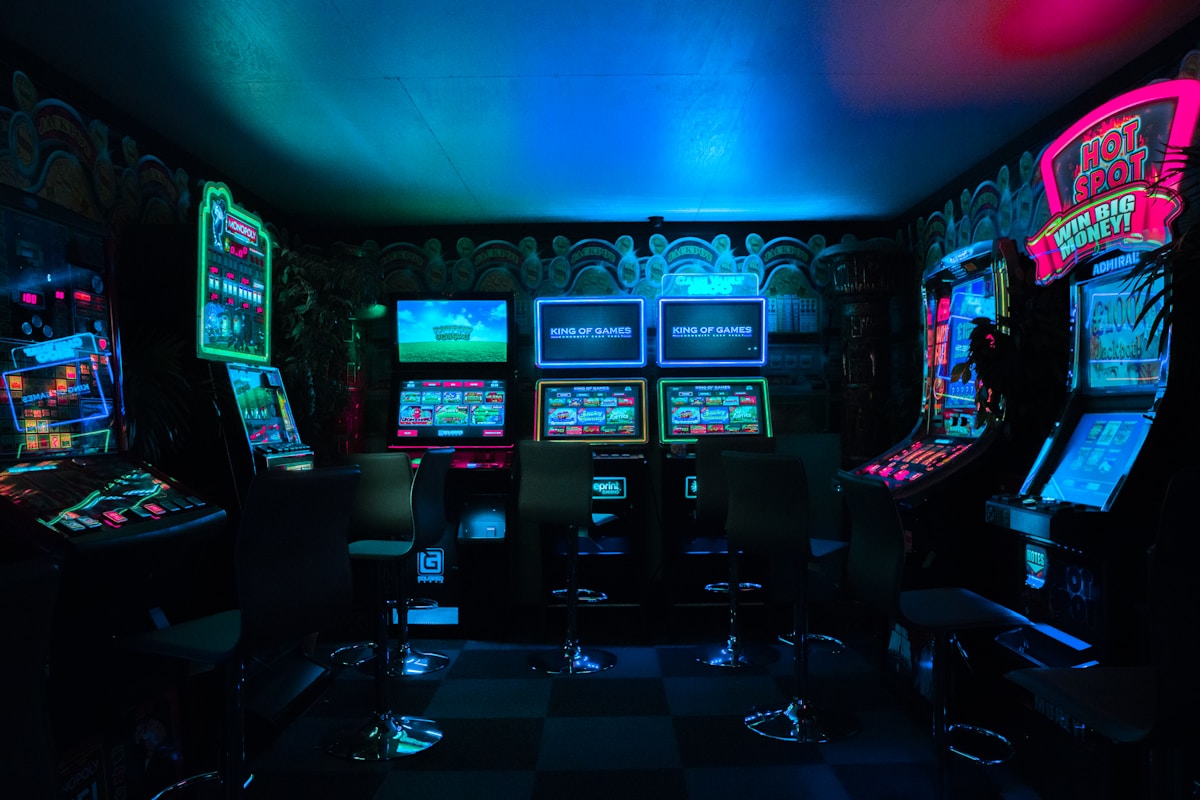Chris Wilson, co-founder of Grinding Gear Games and creator of Path of Exile, just published a 90-minute interview with Arthur Bruno, founder of Crate Entertainment and creator of Grim Dawn. The conversation explores how two studios took opposite approaches to ARPG development, with Wilson building a free-to-play live service designed to run forever, while Bruno created a traditional buy-to-play game focused on single-player experiences with optional multiplayer.
- The Core Philosophy Divide
- Remote Work Before It Was Necessary
- Crowdfunding Success and Constraints
- Balancing for Different Multiplayer Philosophies
- Modding Tools and Community Content
- Marketing and Expansion Cadence
- What’s Next for Both Developers
- Why This Conversation Matters
- Frequently Asked Questions
- Conclusion
The Core Philosophy Divide
Wilson launched the interview by noting he found Bruno’s approach fascinating specifically because Arthur took an entirely different approach to most aspects of the business model of his game and the structure of his studio than we did back when I co-founded Grinding Gear Games. That fundamental divergence created two successful ARPGs that appeal to overlapping but distinct audiences despite sharing the same genre.
Grim Dawn raised over half a million dollars through Kickstarter crowdfunding in April 2012, the same month Path of Exile launched its own crowdfunding campaign on its website. Both games survived that critical early funding phase but then evolved in completely different directions. Path of Exile became a constantly updating live service with 13-week expansion cycles, while Grim Dawn focused on delivering a complete experience players could mod, supporting it with periodic expansions rather than endless content treadmills.
Remote Work Before It Was Necessary
One of the most interesting segments covered Crate Entertainment’s fully remote structure from day one. Bruno explained the reasoning was simple economics rather than philosophy. I just couldn’t afford office space, he admitted. The early Grim Dawn team consisted of volunteers and part-time contractors scattered geographically, making remote collaboration the only viable option when operating on Kickstarter funds.
Wilson contrasted this with Grinding Gear Games’ approach, which was very much set up to crowd around a monitor and make a game with your friends in person. He didn’t really enjoy Covid because the forced remote work killed the collaborative energy that defined GGG’s early culture. When the pandemic hit in 2020, Crate Entertainment barely noticed from an operational perspective since their workflows were already optimized for distributed teams. That head start proved invaluable when other studios scrambled to adapt.
The Titan Quest Connection
Before founding Crate Entertainment, Bruno spent years at Iron Lore Studios designing Titan Quest, the mythological ARPG that directly inspired both Grim Dawn and Path of Exile. He described playing thousands of hours of Diablo 2 while designing Titan Quest, staying up until 4 AM with an engine programmer before waking up to continue development. That obsessive study of what made Diablo 2 work informed every design decision in Titan Quest and later Grim Dawn.
Bruno worked on Titan Quest for three years before Iron Lore secured publisher funding, doing hourly contract work with no guarantee the project would happen. The sunk cost fallacy kept him going, he joked, since quitting after two years would have wasted all that unpaid effort. He eventually designed almost every major feature in Titan Quest, all the itemization, monster encounters, and boss battles that defined the game’s feel. When Iron Lore collapsed after the Immortal Throne expansion, Bruno licensed the Titan Quest engine and founded Crate Entertainment to make Grim Dawn.
Crowdfunding Success and Constraints
The Kickstarter campaign transformed Grim Dawn from Arthur’s personal project funded out of pocket into an actual development studio with full-time employees. Bruno went from paying for a little bit of art and volunteer work to suddenly being able to hire real staff. That funding unlocked production velocity but also created obligations. Backers expected the game they were promised, which constrained Bruno’s ability to pivot design directions mid-development.
Wilson’s experience with Path of Exile crowdfunding followed similar patterns. Both studios used backer money to prove commercial viability and attract additional investment. The key difference was Path of Exile’s free-to-play model required continuous funding through cosmetic microtransactions, while Grim Dawn could survive on box sales and expansion revenue. That economic model shaped everything from content cadence to design priorities.
Balancing for Different Multiplayer Philosophies
A substantial chunk of the interview focused on how online economies and trading systems influenced game balance. Path of Exile’s economy-driven multiplayer required constant adjustments to prevent items from becoming too common or too rare, since player trading created market forces that could destabilize progression. Wilson described fighting botting operations and exploits as an ongoing war that consumed significant development resources.
Grim Dawn took the opposite approach with optional multiplayer that doesn’t emphasize trading or economies. Bruno designed the game primarily for single-player experiences where each person’s loot and progression exists in isolation. That eliminated entire categories of balance problems Path of Exile constantly battles. However, it also meant Grim Dawn couldn’t capture the same social dynamics and competitive ladders that keep Path of Exile players engaged for thousands of hours.
Modding Tools and Community Content
Bruno discussed Crate Entertainment’s decision to provide extensive modding tools for Grim Dawn, allowing players to create custom content, rebalance systems, and even build total conversions. Path of Exile never supported modding because the free-to-play model depends on controlling the exact gameplay experience to monetize cosmetics. Wilson can’t allow players to mod in their own cosmetics when the business model relies on selling them.
The modding support extended Grim Dawn’s lifespan significantly beyond what Crate could produce internally. Community-created content keeps players engaged between official expansions, reducing pressure on the studio to constantly output new material. That breathing room let Bruno’s small team work at sustainable paces rather than the relentless 13-week expansion cycles that defined Path of Exile development under Wilson’s leadership.
Marketing and Expansion Cadence
The conversation touched on marketing philosophies, with Bruno admitting Crate Entertainment did minimal traditional marketing for Grim Dawn. The game relied on word-of-mouth, Kickstarter visibility, and organic discovery through Steam. Wilson’s approach with Path of Exile was far more aggressive, with major marketing campaigns tied to every 13-week expansion release to drive player surges that re-engaged the community and attracted new users.
Expansion release timing also differed dramatically. Grim Dawn expansions arrived when Crate felt they had substantial content worth charging for, sometimes years apart. Path of Exile’s quarterly cycle prioritized consistent engagement over content depth, accepting that some leagues would be thinner than others. Neither approach is objectively better, they serve different business models and player expectations.
What’s Next for Both Developers
The interview briefly touched on future projects. Bruno confirmed Crate Entertainment is working on an RTS game and discussed their city-builder Farthest Frontier. Grim Dawn 2 came up around the 1:24:19 timestamp, though Bruno didn’t reveal concrete details beyond acknowledging it’s something the studio wants to make eventually. Titan Quest 2 was also mentioned since THQ Nordic announced that sequel earlier in 2025.
Wilson for his part is working on an unannounced project at his new studio Light Pattern after leaving Grinding Gear Games in 2023. He’s been coy about details but emphasized returning to small team development with friends, similar to Path of Exile’s early garage days before it became a 200-person operation. The timing of discussing ARPG development with Bruno on a Diablo 2 anniversary wasn’t accidental, suggesting Wilson’s new project lives in the same genre space.
Why This Conversation Matters
The interview provides rare insight into how business model decisions cascade through every aspect of game development. Wilson and Bruno made opposite choices on nearly every major decision, from monetization to team structure to multiplayer philosophy, yet both created beloved ARPGs with dedicated communities. That proves there’s no single correct path to success in the genre, just different trade-offs that appeal to different developers and audiences.
For aspiring ARPG developers, the conversation is essential viewing. It covers crowdfunding strategies, the realities of remote development, balancing for online economies versus single-player progression, fighting bots and exploits, supporting modding communities, and managing sustainable content pipelines. Hearing two successful creators discuss these challenges candidly provides education you can’t get from design documents or postmortems.
Frequently Asked Questions
Who is Chris Wilson?
Chris Wilson co-founded Grinding Gear Games in 2006 and created Path of Exile, the free-to-play ARPG that won GameSpot’s PC Game of the Year in 2013. He stepped down from GGG at the end of 2023 and founded Light Pattern in 2025 to work on a new unannounced project.
Who is Arthur Bruno?
Arthur Bruno, also known as Medierra, is founder and creative director of Crate Entertainment. He previously designed Titan Quest at Iron Lore Studios before founding Crate and creating Grim Dawn, a buy-to-play ARPG funded through Kickstarter in 2012.
What is the main difference between Path of Exile and Grim Dawn?
Path of Exile is a free-to-play live service game with constant updates, online economies, and 13-week expansion cycles. Grim Dawn is a traditional buy-to-play game focused on single-player with optional co-op, mod support, and periodic expansions.
How long is the Chris Wilson and Arthur Bruno interview?
The interview runs approximately 90 minutes, covering topics from Titan Quest development to crowdfunding, remote work, multiplayer balancing, modding tools, marketing, and future projects including Grim Dawn 2.
Did Chris Wilson work on Path of Exile 2?
Wilson was involved in early Path of Exile 2 development before stepping down from Grinding Gear Games at the end of 2023. The game was announced in 2019 and is being developed by the current GGG team under Tencent ownership.
Is Grim Dawn getting a sequel?
Arthur Bruno acknowledged Grim Dawn 2 is something Crate Entertainment wants to make eventually, but no concrete details or timeline were provided during the interview. The studio is currently working on an RTS game and supporting Farthest Frontier.
Why did Crate Entertainment use remote work from the start?
Crate operated remotely from day one because founder Arthur Bruno couldn’t afford office space when running on Kickstarter funding. The structure was born from financial necessity rather than philosophical preference, but proved advantageous when COVID-19 forced other studios remote.
Conclusion
The 90-minute conversation between Chris Wilson and Arthur Bruno offers rare transparency about the business realities behind ARPG development. Two creators who took opposite approaches on nearly every major decision, from monetization to team structure to multiplayer philosophy, both found success by committing fully to their chosen paths. The interview serves as both historical documentation of how Grim Dawn and Path of Exile evolved and practical education for anyone interested in understanding what it actually takes to build sustainable ARPG experiences in modern gaming.



